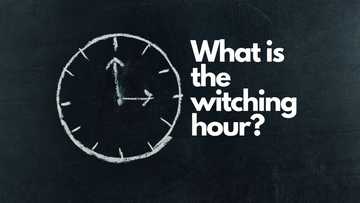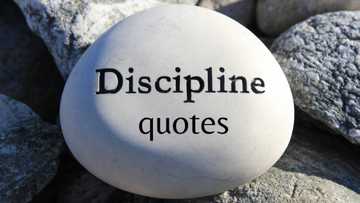Besieged by Life? How You Can Turn It Around, by Duke Ezikpe Mma
Editor’s note: In this piece, Duke Ezikpe Mma addresses how relentless demands and societal pressure can leave individuals feeling overwhelmed, and offers grounded strategies for reclaiming balance, setting boundaries, and navigating life’s inevitable highs and lows with intention.
Many things in the world fascinate me, but the topmost among them is the sense that life is sinusoidal. It ebbs and flows like a wave, constantly shifting between the crest of triumph and troughs of despair. One moment, you might be soaring, experiencing the peak of success, joy, or well-being, only to find yourself navigating the depths of challenge, sorrow, or exhaustion the next. This can flow into every area of our life, physical, mental, and emotional states, our professional performance, and even our social interactions.

Source: Getty Images
Beyond the individual experiences, the sinusoidal pattern can be observed at the national level, the high level of inflation, the low purchasing power compared to just a few years ago, the low and porous level of insecurity, leaving everyone overwhelmed, the unsafe nature of our roads, etc. The concept extends to the human condition itself. The inherent temporariness of all things, the constant interjection of positive and negative forces. It reminds us that no state is permanent and that even in the darkest troughs, a crest is inevitably on the horizon, just as every peak will eventually give way to a descent.

Read also
“Honesty now seen as lack of ambition”: Development strategist decries Nigeria’s moral decay
Yet, regardless of where you are in this wave, there’s often an unspoken expectation to maintain a façade of strength, to show up strong even when you’re at your breaking point. Your organization, for instance, still expects the same level of work and the same unwavering performance, despite the personal battles you might be fighting. This societal pressure often forces individuals to suppress their vulnerability, leading to further isolation and distress, as the prevailing sentiment can feel like “no one really cares.”
Empathy, however, seems to have long gone in our world today. It’s a sentiment that resonates deeply when we consider the demanding, often unforgiving, expectations placed upon us. In a society that frequently prioritizes productivity and outward resilience, the gentle art of understanding and sharing the feelings of another often takes a backseat. Especially, when you are living in a country where you are not certain what will happen in the economic arena, making this feel less predictable. It can feel incredibly isolating when you’re navigating a personal trough, and the very systems and people around you appear oblivious to your struggle, or worse, indifferent. This absence of empathy contributes to a culture where vulnerability is perceived as weakness, and where the human cost of relentless demands goes unacknowledged. Imagine how different our workplaces, our communities, our nation, and our individual lives could be if empathy were not a forgotten concept but a guiding principle, fostering environments where people feel seen, supported, and understood, regardless of whether they’re at a crest or in a trough.
Besiege is more of a military term than an ordinary term. It is a term that means to attack with an army or to pester with many requests. This sounds familiar, right? I mean pestering with many requests. Remember the tough experiences, and the demands life places on us: too many demands at work, children sick all at once, school fees, perpetual economic demand, and chronic sickness. When we are faced with many things going on at the same time, we feel overwhelmed and in that moment feel besieged.
Besiege is a metaphor for what happens to us when, all of a sudden our walls come crashing down and we have no struggle nor stamina to withstand the crash. Therefore, we feel overwhelmed, stressed, and anxious, with burnout, loss of control, isolation, and difficulty concentrating.

Source: Getty Images
How to break free and gain back balance
When life feels like an unending assault of demands and stressors, the key is not to fight every battle head-on but to strategically disengage and reorganize. This doesn’t mean giving up; it means adopting a more sustainable approach to navigating your personal troughs.
Start by embracing prioritization. Identify the more pressing demands and let go of the rest. In a besieged state, everything feels urgent. The first step is to ruthlessly identify and focus on the most important tasks – those that truly cannot wait or directly impact your well-being. What absolutely must get done today? What can be postponed? What can be delegated entirely? By disengaging from all of the things that matter less, one is able to free up mental and emotional space.
Next, consider setting boundaries. Learning to say “no” is not selfish; it’s self-preservation. Protecting your time and energy by establishing clear boundaries with work, family, and even friends is crucial. This might mean declining extra projects, setting specific “off-limits” hours, or simply stating when you’re unavailable. Remember, a “no” to one thing is a “yes” to your well-being.
Equally important is delegation. You don’t have to carry every burden alone. Sharing responsibilities whenever possible can significantly lighten your burden. This could involve delegating tasks at work, asking for help from family members with household chores, or even seeking professional assistance for certain areas of your life. Recognize that asking for help isn’t a sign of weakness, but a smart strategy.
In the midst of it all, don’t forget mindfulness and self-care. When under siege, our nervous systems are on high alert. Taking time for relaxation and stress management is a necessity. This is not a luxury; it’s a necessity for breaking the cycle of overwhelming burden. Practices like deep breathing, meditation, gentle stretching, or simply spending time in nature can help regulate your emotions and bring you back to a place of calm.
Another practice is seeking support. The feeling of isolation is a hallmark of being besieged. Talking to friends, family, or professionals for help is vital. Share your struggles with someone you trust. A therapist, counselor, or spiritual leader can provide tools and strategies for coping, while a supportive friend can offer a listening ear and a different perspective. Don’t suffer in silence.
Lastly, detox your digital engagement. In our ever-busy world, constant digital input can exacerbate feelings of being overwhelmed. Taking time away from electronic devices allows your mind to rest and reset. This could mean setting specific times for checking emails, putting your phone away during meals, or even taking a full day or weekend away from screens.
By embracing these strategies, you shift from constantly battling the “siege” to consciously managing the flow of life’s demands. It’s about recognizing that while the waves of crests and troughs are inevitable, how you navigate them, and how you allow yourself to surrender to the current when necessary, determines your resilience and ability to ultimately “let it flow.”
Duke Ezikpe Mma of Nextdoor_Therapy is a mental health specialist, educator, coach, and writer dedicated to mental wellness and advocacy.
Disclaimer: The views and opinions expressed here are those of the author and do not necessarily reflect the official policy or position of Legit.ng.
Source: Legit.ng

Ololade Olatimehin (Editorial Assistant) Olatimehin Ololade is a seasoned communications expert with over 7 years of experience, skilled in content creation, team leadership, and strategic communications, with a proven track record of success in driving engagement and growth. Spearheaded editorial operations, earning two promotions within 2 years (Giantability Media Network). Currently an Editorial Assistant at Legit.ng, covering experts' exclusive comments. Contact me at Olatimehin.ololade@corp.legit.ng or +234 802 533 3205.

Duke Ezikpe Mma (Mental Health Expert) Duke Ezikpe Mma is a Mental Health Specialist, Educationist, Coach, and Writer dedicated to mental wellness and advocacy. He holds degrees in Clinical Psychology from Nasarawa State University and Information Management from Ahmadu Bello University. As the founder of Where Do Broken Hearts Go and Grayscale Support Group, he provides safe spaces for individuals facing mental health challenges. A member of COSROPIN, he actively advocates for the well-being and rights of older persons in Nigeria.



